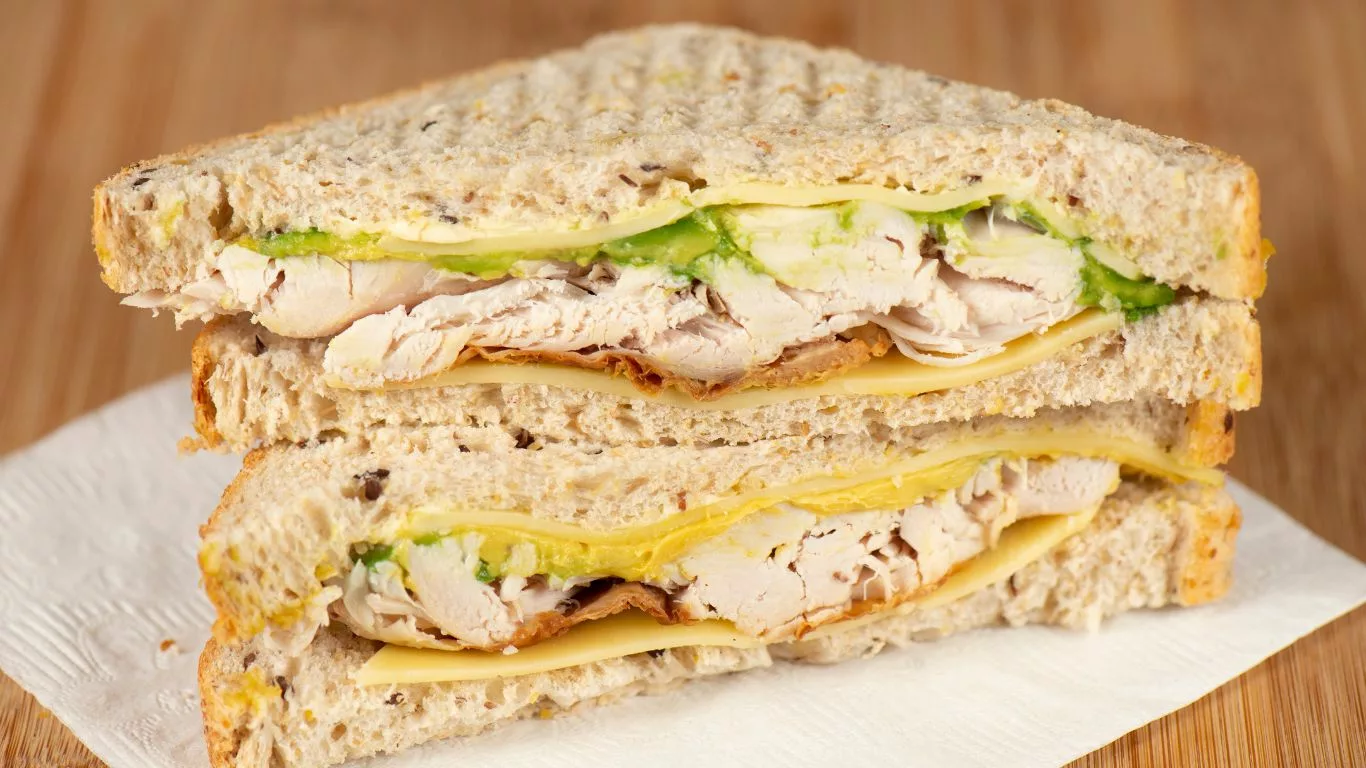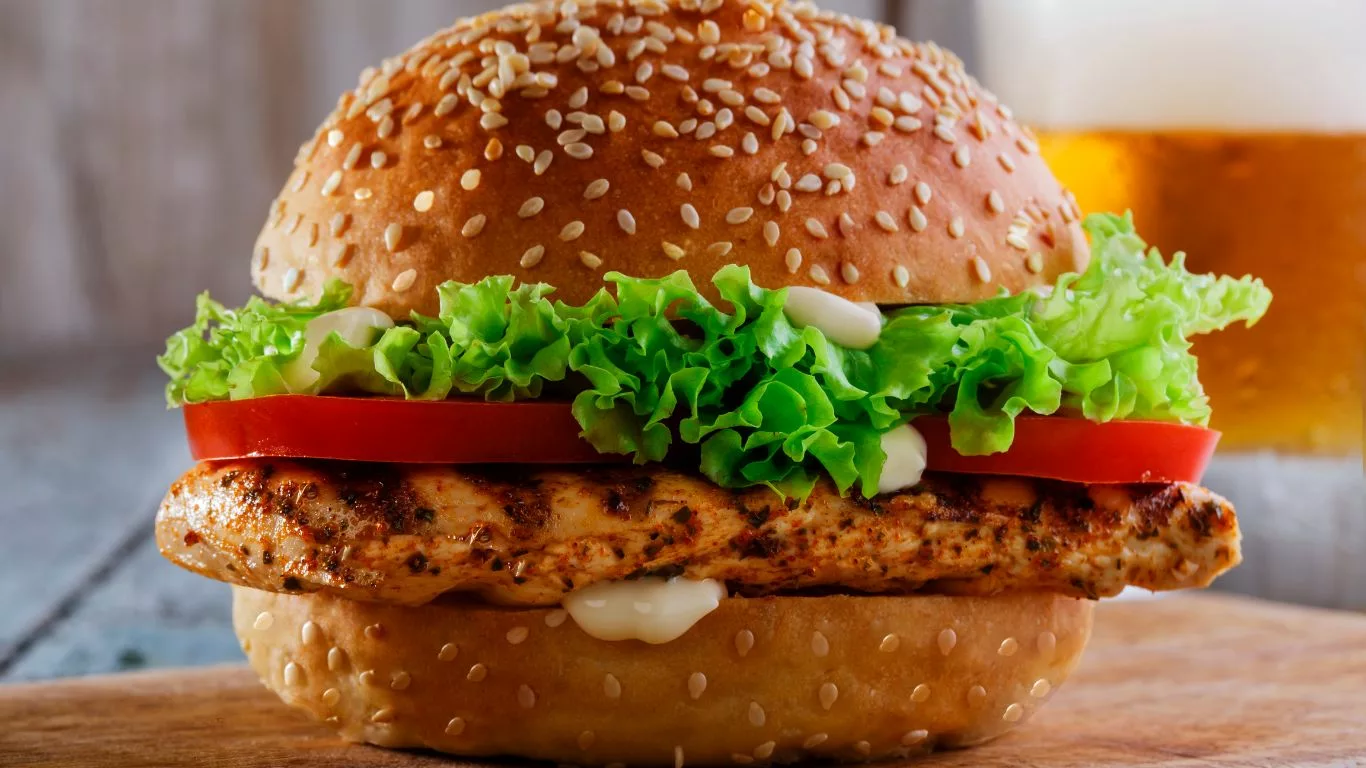Finding Relief: Exploring GERD-Friendly Fast Food Options
Fast food often conjures images of greasy burgers and fried delights, but for individuals managing GERD (Gastroesophageal Reflux Disease), such indulgences can spell discomfort. However, there’s good news: navigating the world of fast food doesn’t have to mean sacrificing taste for digestive health. In this comprehensive guide, we’ll delve into GERD-friendly fast food options, offering a palate-pleasing path to relief.
Understanding GERD and Dietary Impact
GERD is a chronic condition characterized by the reflux of stomach acid into the esophagus, causing symptoms like heartburn, regurgitation, and discomfort. While medications and lifestyle modifications play crucial roles in managing GERD, dietary choices also exert significant influence. Certain foods and beverages, including spicy dishes, fatty meals, and acidic drinks, can exacerbate symptoms, making fast food outings a potential minefield for GERD sufferers.

Choosing GERD-Friendly Fast Food
Navigating fast food options while managing GERD requires strategic choices to minimize discomfort and promote digestive health. Fortunately, many fast food establishments offer menu items that align with GERD dietary recommendations. Here’s an in-depth look at selecting GERD-friendly fast food:
Opt for Grilled Over Fried
When selecting protein options such as chicken or fish, opt for grilled versions instead of fried. Grilled options tend to be lower in fat and less likely to trigger reflux symptoms. The grilling process retains flavor without adding excess oil or grease, making it a healthier choice for individuals with GERD.
Skip the Spicy Sauces
Condiments and sauces known for their spicy kick can irritate the esophagus and exacerbate heartburn. To minimize discomfort, avoid spicy sauces and opt for milder alternatives like mustard or ketchup. Choosing sauces with lower acidity levels can help reduce the risk of triggering reflux symptoms while still adding flavor to your meal.
Choose Lean Proteins and Whole Grains
When perusing the menu, prioritize options featuring lean proteins such as turkey or grilled chicken, paired with whole grains like whole wheat buns or wraps. Lean proteins are easier to digest and less likely to cause reflux, while whole grains provide essential nutrients and fiber to support digestive health. By opting for these wholesome choices, you can enjoy a satisfying meal while minimizing the risk of triggering GERD symptoms.
Customize Your Order
Don’t hesitate to customize your order to suit your dietary needs and preferences. Many fast food establishments offer customizable options, allowing you to omit ingredients that may trigger GERD symptoms. Whether it’s requesting no onions or opting for a lighter dressing on your salad, tailoring your order ensures a GERD-friendly dining experience that meets your individual requirements.

Top GERD-Friendly Fast Food Picks
While specific offerings may vary by location, several fast food chains offer menu items suitable for individuals with GERD. Here are some top picks to consider:
Grilled Chicken Sandwich
Indulge in a grilled chicken sandwich served with whole wheat bread and a side salad instead of fries for a satisfying, GERD-friendly meal. The grilled chicken provides a lean protein source, while whole wheat bread offers added fiber and nutrients for optimal digestive health.
Salad with Lean Protein
Opt for a salad topped with grilled chicken, turkey, or shrimp, accompanied by a vinaigrette dressing on the side. Be mindful of ingredients like tomatoes and onions, which can trigger reflux in some individuals. This light and refreshing option provide essential nutrients and protein without weighing you down.
Vegetarian Options
Explore vegetarian or plant-based options such as veggie wraps or salads, which tend to be lighter and less likely to cause digestive discomfort. These options offer a refreshing alternative packed with nutrients and fiber to support digestive health while satisfying your hunger.

Practical Tips for Eating Out
Eating out with GERD doesn’t have to be daunting. Here are some practical tips to make your dining experience more enjoyable and reflux-friendly:
Portion Control
Practice portion control to prevent overeating, which can contribute to reflux symptoms. Opt for smaller meal sizes or share larger portions with dining companions to avoid discomfort and promote digestive wellness.
Eat Mindfully
Take your time to chew food thoroughly and savor each bite. Eating slowly can aid digestion and reduce the likelihood of reflux episodes, allowing you to enjoy your meal without worrying about discomfort.
Stay Hydrated
Stay hydrated by sipping water throughout your meal. Avoid carbonated beverages and caffeine, as they can exacerbate GERD symptoms. Opting for water helps maintain hydration levels and supports optimal digestion, promoting overall digestive comfort.
By incorporating these tips and recommendations into your fast food dining experience, you can enjoy delicious meals while managing GERD symptoms effectively. Remember to listen to your body and make choices that prioritize digestive health, ensuring a satisfying and reflux-friendly dining experience.

Conclusion
Managing GERD doesn’t mean bidding farewell to fast food altogether. With mindful choices and strategic selections, individuals with GERD can still enjoy the convenience and flavors of fast food without sacrificing digestive comfort. By prioritizing lean proteins, whole grains, and customizable options, you can navigate the fast food landscape with confidence, knowing that relief is just a meal away.
Remember, dietary preferences and triggers vary among individuals, so listen to your body and make choices that align with your unique needs. With a bit of planning and awareness, you can indulge in fast food fare while keeping GERD symptoms at bay.
Appendices
References
For further exploration of GERD-friendly fast food options and dietary management, consider reviewing the following references:
- Mayo Clinic. (2022). GERD (Gastroesophageal Reflux Disease). Retrieved from https://www.mayoclinic.org/diseases-conditions/gerd/symptoms-causes/syc-20361940
- American Gastroenterological Association. (n.d.). GERD Diet. Retrieved from https://gastro.org/practice-guidance/gi-patient-center/topic/gerd-diet/
- National Institute of Diabetes and Digestive and Kidney Diseases. (2021). Eating, Diet, & Nutrition for GER & GERD. Retrieved from https://www.niddk.nih.gov/health-information/digestive-diseases/acid-reflux-ger-gerd-adults/eating-diet-nutrition
FAQs
Here are some frequently asked questions about GERD-friendly fast food options:
- Can I eat fast food if I have GERD?
Yes, you can enjoy fast food while managing GERD by making mindful choices. Opt for lean proteins, whole grains, and customized orders to minimize reflux triggers. - What are some common triggers for GERD symptoms?
Common triggers for GERD symptoms include spicy foods, fatty meals, caffeine, alcohol, and acidic foods and beverages. - Are there specific fast food chains that offer more GERD-friendly options?
Many fast food chains offer customizable options and healthier alternatives, making it easier for individuals with GERD to find suitable menu items. Choose establishments that prioritize fresh ingredients and offer grilled options.
Related Table
Here’s a summary table outlining key considerations for selecting GERD-friendly fast food options:
| Aspect | Consideration |
|---|---|
| Protein | Opt for lean proteins like grilled chicken or turkey to reduce fat content and minimize reflux triggers. |
| Grains | Choose whole grain options for bread, buns, or wraps to increase fiber content and support digestive health. |
| Condiments | Avoid spicy or acidic sauces and opt for milder alternatives like mustard or vinaigrette dressing. |
| Customization | Customize your order to omit ingredients that may trigger GERD symptoms, such as onions or tomatoes. |
Note: Individual responses to food may vary, so it’s essential to listen to your body and make choices that align with your unique dietary needs and preferences.
Disclaimer: The information provided in this article is for educational and informational purposes only. It is not intended to be a substitute for professional medical advice, diagnosis, or treatment. Always seek the advice of your physician or other qualified health provider with any questions you may have regarding a medical condition. Never disregard professional medical advice or delay in seeking it because of something you have read in this article. Reliance on any information provided in this article is solely at your own risk.

Camellia Wulansari is a dedicated Medical Assistant at a local clinic and a passionate health writer at Healthusias.com. With years of hands-on experience in patient care and a deep interest in preventive medicine, she bridges the gap between clinical knowledge and accessible health information. Camellia specializes in writing about digestive health, chronic conditions like GERD and hypertension, respiratory issues, and autoimmune diseases, aiming to empower readers with practical, easy-to-understand insights. When she’s not assisting patients or writing, you’ll find her enjoying quiet mornings with coffee and a medical journal in hand—or jamming to her favorite metal band, Lamb of God.







